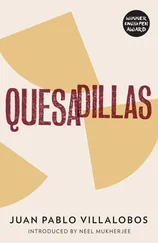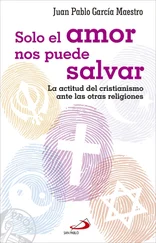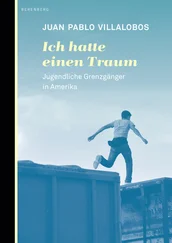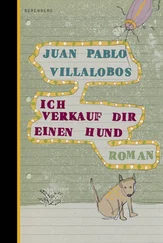She started to cry as if her son had been accused of stabbing a thousand puppies to death. Francesca tried to console her: she told her that the police always said that when someone disappeared, so they didn’t have to look for them. That the delivery boy was a good kid and the proof was that we had come looking for him. That everyone in our building missed him, we’d grown very fond of him. It sounded as if she was talking about a dog. She paused so I could back her up.
‘Very fond,’ I said.
‘How old was your son?’ Francesca asked.
And immediately corrected herself, making things worse: ‘How old is he, I mean?’
‘Seventeen,’ his mother replied.
‘He looked older,’ Francesca said.
‘Yes, he looks older,’ I said.
‘Life’s not easy round here,’ said his mother.
She was apologising because her son had had to grow up quicker than she would have liked, hinting, as she did so, that she believed the police’s version of events and ultimately justifying the boy’s actions as inevitable. The boy’s younger brother came out of the bedroom where he’d been, behind the closed door, until now. His mother introduced him, said he was fifteen, was at college, a smart kid who would probably go to university. At that moment I saw my chance and I wasn’t going to let it go: I asked the boy’s mother if I could speak to him alone. I winked, hoping the mother and Francesca would realise what my intentions were. The false ones, not the actual ones.
‘Yes, of course,’ the mother said.
I stood up and walked over to the door. The boy followed me, obediently. We left the apartment and moved a few yards away down the hallway.
‘Are you selling?’ I asked him.
‘How much?’ he said.
‘Three litres.’
‘Litres? How many grams, Grandpa?’
‘I want to buy whisky, kid, and don’t call me Grandpa. Can you get hold of it?’
‘Hang on,’ he replied.
He walked to the end of the hall and knocked on the last door. I watched him wait outside. Then he returned, carrying a bag. I gave him a hundred-peso note and he gave me the three bottles.
‘You’re twenty pesos short,’ he said.
‘Your brother used to sell it to me for thirty.’
‘I charge forty.’
I gave him the twenty pesos.
‘Do you know what happened to your brother?’ I asked.
‘They say he got whacked.’
‘Who says?’
‘People here, in the building.’
I put the bottles in the rucksack I’d brought along for the purpose.
‘Hey, don’t tell my mother,’ the boy said.
Don’t tell her what, I thought: that you know your brother’s dead or that you’re headed the same way?
‘Could you deliver to my apartment?’ I asked him.
‘Not likely, I’m not going all that way just to earn ten pesos. My brother was a pushover.’
The manager of the supermarket fired the new delivery boy after accusing him of having stolen the tin of jalapeños and a new new delivery boy was hired. After he got wise to what had happened to his predecessor, the new new delivery boy gave us a wide berth, and when we did get hold of him, we had to beg him to come in with us on the plan. In the end he set a condition: seizing upon some small print in the union’s collective agreement that the other boy hadn’t read, he refused to cross the threshold of the building.
Willem had decided to exterminate the cockroaches. One day he had brought along a piece of chalk and traced around the outline of the apartment and all the rooms, as if he were drawing a blueprint on top of reality. The theory was that the cockroaches wouldn’t be able to cross the line and would remain outside.
‘And the ones that are already inside won’t be able to leave?’ I asked him.
He promised he’d bring another solution for the ones inside. Logically, the cockroaches crossed the line as if nothing had changed: since when did borders work? Another day Willem had gone round the whole house with a spray gun. That day, while the poison took effect, we had gone to have a coffee in the Chinese restaurant over the road. Actually, my coffee was a beer. They gave us fortune cookies. Willem’s said: You will be recompensed for your good deeds . Mine said: He who seeks, finds .
‘I knew it!’ Willem said.
All that Bible study just to end up interpreting everything literally. Then it dawned on me that there weren’t any cockroaches in the Chinese restaurant. We tried to talk to the owner, the guy who looked like the owner, and to the waiters. Impossible: they only spoke Chinese. I tried to take one of them over to my building to show him a cockroach, to see if I could get him to understand that way, but when I tugged at his arm they all took fright and locked themselves in the kitchen. Willem said: ‘Perhaps if yuh didn’t drink so much.’
‘If I didn’t drink so much I’d understand Chinese? Yeah, right!’
‘If yuh didn’t drink so much yuh wouldn’ have scayud them.’
‘Don’t you preach at me, Villem.’
When we got back to the apartment, the cockroaches were merrily strolling about on the ceiling. Another time, Willem had installed traps in every corner of the place, these little black plastic boxes. I never understood how they worked: were the cockroaches going to lift up the little boxes and get inside? That idea didn’t work either, but at least it was intriguing. It kept my brain occupied for a whole week. Just as mysterious were the plug-ins, which in theory gave off a substance that would flush out the critters. Equally ineffective. A yellow powder you had to smear on the filler between the tiles on the floor turned out to be the worst of the fiascos: the cockroaches ate it and started flying madly around like rockets. I suggested to Willem that we try it ourselves.
Failures came and went, until finally, one Wednesday afternoon, Willem turned up with his head bowed.
‘I’ve run out of ideas, Teodooruh,’ he said.
I had one: we set to smashing them with books.
He, with his Bible, and I with my Aesthetic Theory .
The woman next door had got a job and her hours prevented her from collecting her daughter after school, so she had asked if my mother could help get her home safe and sound. The woman was a widow and the little girl her only daughter, and she took classes in the afternoon. I had all my classes in the morning. The girl was fourteen, nearly fifteen.
‘Can she not she walk home on her own?’ my mother asked.
‘You have no idea what an ordeal that would be,’ explained our neighbour.
I did: queues would form down the street to follow her long-legged walk home. The street was full of dangers, you only had to open your eyes to the canine show going on to imagine what might end up happening to her. Lines of dogs waiting patiently to mount a little bitch in heat. Or not so patiently: sometimes there were furious fights in the queue. Growls. Fangs. Bloodied hackles. Unwanted pregnancies.
My mother replied that she could count on us, or rather, on me, and told me I could take Turnup out for a walk at the same time. Our neighbour was satisfied: she didn’t know that until now I had been one of her daughter’s most ardent stalkers.
The girl was called Hilaria, despite evidence to the contrary.
‘Why did they call you Hilaria?’ I asked her.
‘Why do you think?’ she replied. ‘Listen to my laugh, it’s hilarious.’
And she growled.
Every afternoon I waited for her on a bench outside school; Hilaria would cross the road and, before doing anything else, she would walk over to the mirror in a nearby shop window, where she would apply make-up, let down her hair and hitch her skirt up to her knees. Things only got worse: if she already caused an uproar when she walked along dressed like a nun with her mother, now it was like the procession of the Feast of Our Lady of Guadalupe in December. It was a walk of nine blocks and it took us twenty minutes going at the slow pace Turnup obliged us to walk at, pissing here and there, grubbing about in the rubbish in the gutter, seeing what he could stick his snout into. My mother had got it into her head that if we tired the dog out he’d do less damage. When her hypothesis failed, she said that tiring the dog out made him hysterical. What was certain was that, if he was out in the street for a long time, the damage would at least be caused to other people’s property.
Читать дальше












